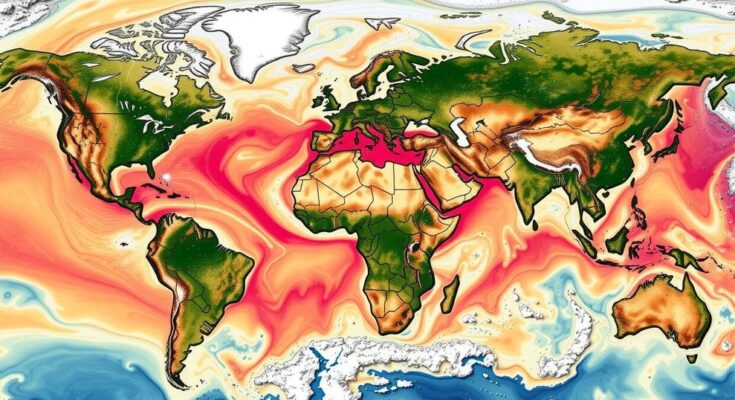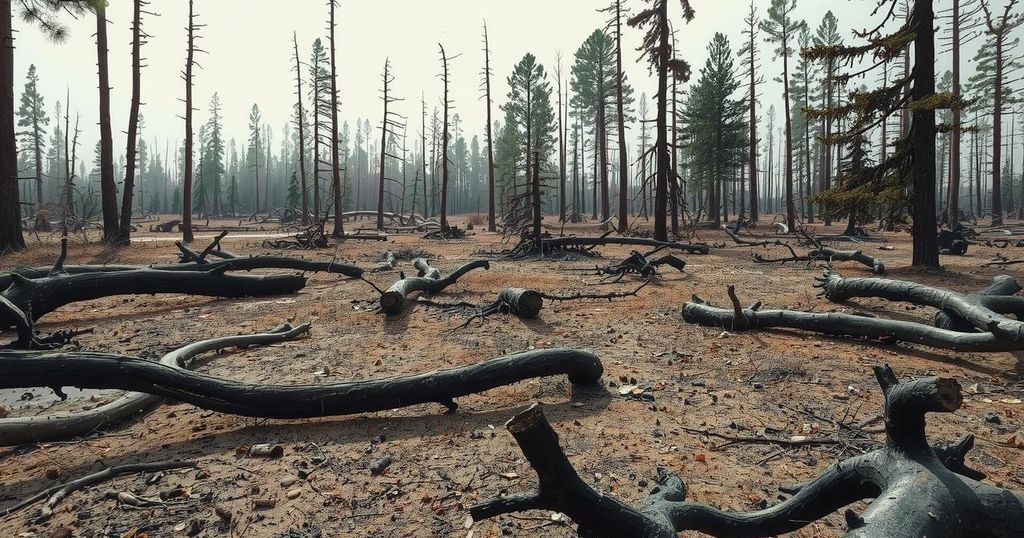The year 2024 has seen unprecedented climate extremes, including severe floods in Brazil and Hurricane Helene in North Carolina. This year is likely to end as the hottest on record, underscoring the profound impacts of extreme weather linked to climate change. Photographs illustrate the significant toll of these events on affected communities worldwide.
The year 2024 has witnessed an alarming surge in extreme weather events, leaving devastating consequences across the globe. Reports indicate that major occurrences such as catastrophic floods in Brazil and Hurricane Helene striking North Carolina exemplify the severe impact of climate extremes this year. It is anticipated that 2024 will be recorded as the hottest year in history, with global temperatures reaching unprecedented levels. These poignant images capture the stark realities faced by communities suffering the effects of such extreme weather conditions, which experts are increasingly linking to climate change phenomena.
In the context of ongoing climate change, the occurrence of extreme weather events has intensified, raising significant concern among scientists and policymakers alike. The year 2024 has particularly illustrated this growing urgency, as natural disasters such as hurricanes and floods wreak havoc and affect millions. As global temperatures continue to rise, the impact of severe weather becomes more pronounced, drawing public attention to the critical importance of adapting and mitigating climate-related risks. Moreover, scientific research is increasingly highlighting correlations between climate change and the frequency of these extreme weather incidents, urging collective action to address these pressing challenges.
In conclusion, the events of 2024 underscore the urgent need for global awareness and action regarding climate change. As extreme weather becomes more pervasive, communities are bearing the brunt of these environmental shifts, exemplified by recent floods and hurricanes. It is imperative for nations to acknowledge these realities and work collaboratively to develop strategies aimed at mitigating the effects of climate change and protecting vulnerable populations from future catastrophes.
Original Source: e360.yale.edu




